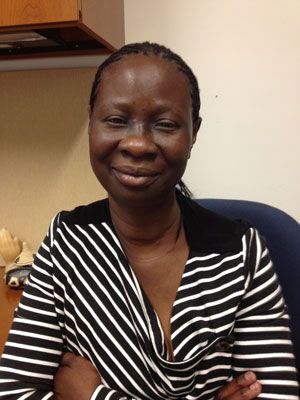Making Development Issues Universal

There’s something I’ve been mulling over since the week that our partner from Zambia, Grace Mazala Phiri, visited our office during her trip to New York for the United Nations Commission on the Status of Women events.
Grace is the head of the Zambia Anglican Council (ZAC), the relief and development arm of the Church in Zambia. Their programs promote community development and work to empower women through income generation projects and literacy training.
We talked a lot about women during her visit – their educational and economic status, their role in society, and how relationships and power dynamics between women and men are changing in areas where ZAC is active. Grace told us how involving men in the literacy and vocational training programs, which originally focused only on women, is providing a platform for mutual understanding and community building.
But that doesn’t mean there is total gender equality in Zambia, or that women are no longer victimized by gender-based violence. Grace related a terrible story of a woman who had been beaten and killed by her husband.
She was then surprised to hear that domestic violence is also a problem in the United States.
We’re so advanced, so “developed,” right? How could we still have this problem?
I read an article today about the Millennium Development Goals, and one part reminded me of how issues we sometimes perceive as “developing world issues” are really universal:
[Gabrielle] Koehler [co-author of a paper on post-MDG goals] would like to see the new goals being applied globally, not just to developing countries, since every country has pockets of poverty and exclusion, and she wants everyone – governments and the governed – to talk much more in terms of rights.
Poverty, hunger, social exclusion, gender-based violence. Tackling these as universal issues that we can all relate to and help each other work through – and not framing them as problems “other people” have “over there” – will be key to really healing our hurting world.
———-
Faith Rowold is the Communications Officer for Episcopal Relief & Development.


